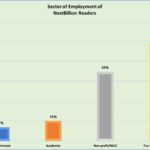Show Me the Money: How Much Do Accelerators Really Help Entrepreneurs Raise?
Do accelerators really help entrepreneurs raise more money for their businesses? The answer so far seems to be yes – both in emerging market country contexts, as well as in high-income countries. But how much and to what extent they are effective varies greatly from program to program.
As part of the Global Accelerator Learning Initiative (GALI), a collaboration between the Aspen Network of Development Entrepreneurs (ANDE) and Emory University, we’ve been looking at these questions. GALI seeks to better understand if, and how, accelerators can drive entrepreneurial growth, spur innovation, address social challenges and create good jobs, especially in emerging markets. Since 2013, Emory University has partnered with accelerator programs to examine accelerator application data and follow up with the entrepreneurs who apply to these programs. GALI has allowed these efforts to scale up, and together we are gaining a deeper understanding of just how different these landscapes are and where the opportunities for growth lie.
Larger GALI findings show that entrepreneurs who go through accelerator programs do raise more money than those who have applied to and been rejected from those programs. Yet deeper country-level analysis is revealing important insights that may benefit many emerging-market based accelerators. In addition to our flagship GALI research, we at ANDE have also been conducting a series of roundtables and other qualitative research to gain a better understanding of how accelerators and incubators are making a difference and what can be improved.
Startup Funding in Emerging Markets
Entrepreneurs in emerging market countries around the world often cite access to capital as one of their greatest challenges. In theory, accelerators can provide more access to that capital. In practice, it’s much more complicated.
Mexico, for example, boasts a burgeoning startup scene, yet our initial findings show that much of the growth in debt and equity raised seems to be concentrated in a small number of high-performing startups. Between the beginning and end of a one-year program, the majority of accelerated businesses actually show little to no growth in equity or debt raised. It appears that a few strong performers are pulling up the average.
Nonetheless, businesses that go through accelerator programs are still usually better off. A forthcoming Mexico-focused GALI report found that, on average, accelerated businesses that had no prior-year investment raised three times more equity than those that applied but were rejected, with a similar increase in debt growth. This is consistent with the larger GALI findings.
First-time accelerated businesses in Mexico also show higher average revenue growth after one year than ventures that have previously been through at least one accelerator program. Yet even that effect is not that simple. Businesses that have participated in at least one accelerator before often start off with more revenue than ventures that have never gone through acceleration programs. While their increase in revenue is not statistically significant, previously accelerated businesses often raise more equity. This may be for several reasons. One possibility is that entrepreneurs may benefit from participating in multiple accelerator programs.
In West Africa, a series of roundtables and interviews in Ghana and Nigeria indicated that factors that limit entrepreneurs’ access to capital relate to business culture, trust and investor-entrepreneur mismatches. Investors in these countries are often wary of investing in entrepreneurs because of historically high default rates, which have been compounded by some startup founders treating money provided through accelerator programs irresponsibly, as if there were no strings attached.
Entrepreneur-investor mismatch also proves to be another challenge in many countries around the world. In West Africa, for example, several startup founders explained that most of the available funds are too large for early-stage startups to be able to absorb. Some investors may look to make deals averaging US $500,000 – $1 million. But findings from our roundtables indicate that most startups in the region are looking for about one-tenth of that amount of funding.
Accelerators have an important role to play in managing investor and entrepreneur expectations, providing investment-readiness training and helping early-stage ventures professionalize their operations in general to attract more investment.
Funding the Accelerators
Beyond recognizing their own biases in the types of founders they favor, the accelerators should be better structured to reflect and serve the reality on the ground. The model established in Silicon Valley, where the accelerator is structured as a seed fund, is more challenging to replicate in emerging markets, where capital is scarcer and exits are fewer.
In Brazil, for example, only 34 percent of our landscape study survey respondents guaranteed direct financing (grants, debt or equity) for entrepreneurs. Some accelerators will make connections between accelerated businesses and investors, but it can often be difficult to match businesses and investors, to make the case for return on investment to the investor, or to understand how to measure social impact in the case of social businesses. Accelerator programs themselves also often rely on government or philanthropic support, and to a lesser extent, venture fees.
India’s accelerator landscape is also in a similar position, where less than a quarter of accelerator and incubator programs are investor-backed, and the majority rely on funding from philanthropic organizations, the government or corporations as part of their CSR initiatives. Approximately 40 percent of survey respondents also rely on a single type of funding, which could have devastating implications if any of the entities that provide funding pivot their priorities.
Time for a new model?
Accelerators in emerging markets do seem to be working – accelerated ventures raise more revenue and investment than unaccelerated ventures. But our research into the state of acceleration in many of the countries where we work suggests room for improvement. As we’ve discussed previously, “The most successful accelerators identify the respective entrepreneur’s specific financing needs rather than assuming that there is one path to success and scale.” In addition, investors in several regions noted that entrepreneurs aren’t always investment-ready when they come out of the accelerator or incubator.
When accelerator and incubator programs rely heavily on grants, it may also reduce the type of accountability and follow-on support for the entrepreneurs. Our research in India suggests that when accelerator and incubator programs rely less on equity as part of their business model, it may be more difficult to establish a track record that would lead to more investor funding. Findings from our roundtables in India also suggest that accelerators and incubators need business models that help set themselves and their entrepreneurs up for long-term success, rather than relying solely on short-term bursts of funding that may exist primarily to fulfill a narrow mandate.
Tailoring support to address investor-entrepreneur mismatches, providing more investment-ready training, and seeking greater diversity of funding are just a few ways that accelerators can adjust their models to better serve their own goals, as well as the entrepreneurs they support.
Interested in learning more? Read the newest report from GALI: Accelerating the Flow of Funds into Early-Stage Ventures.
Note: This article includes research and reporting contributions from Joshua Adedeji, Monica Ducoing and Devyani Singh.
Stephanie Buck works at the Aspen Network of Development Entrepreneurs (ANDE), where she guides the organization’s storytelling, marketing and communications efforts.
Top photo by Kinara Indonesia, courtesy of GALI.
Homepage photo courtesy of Village Capital.
- Categories
- Investing, Social Enterprise



